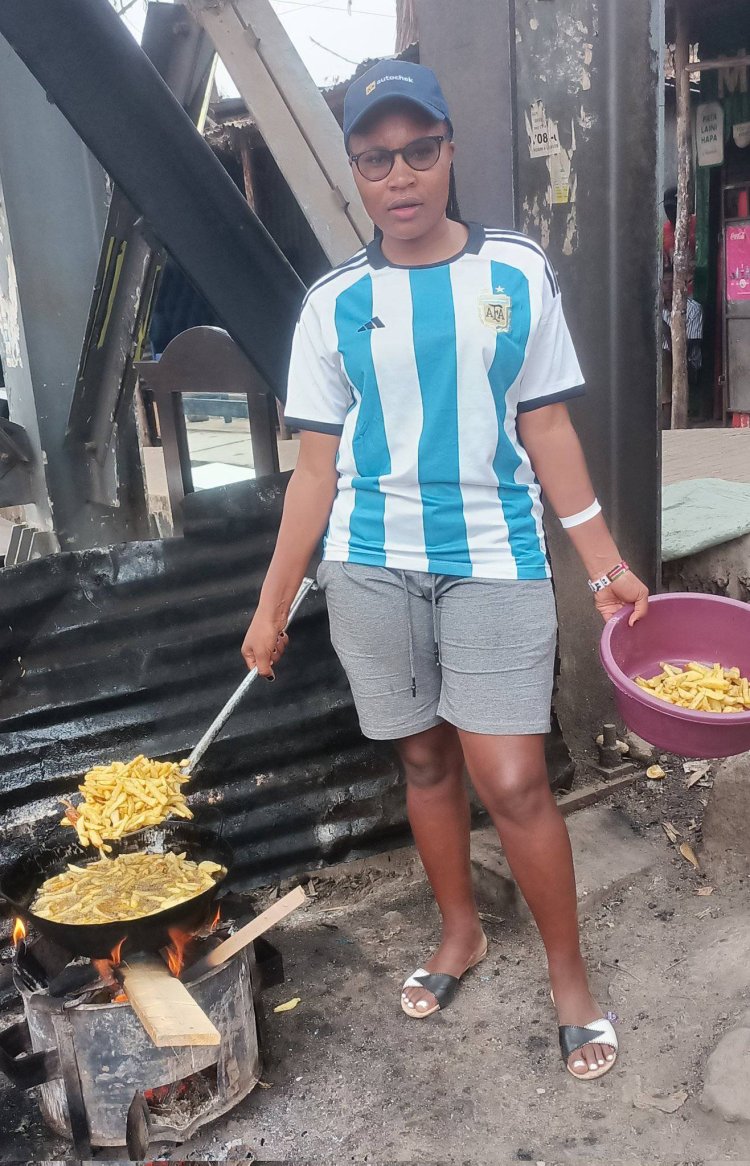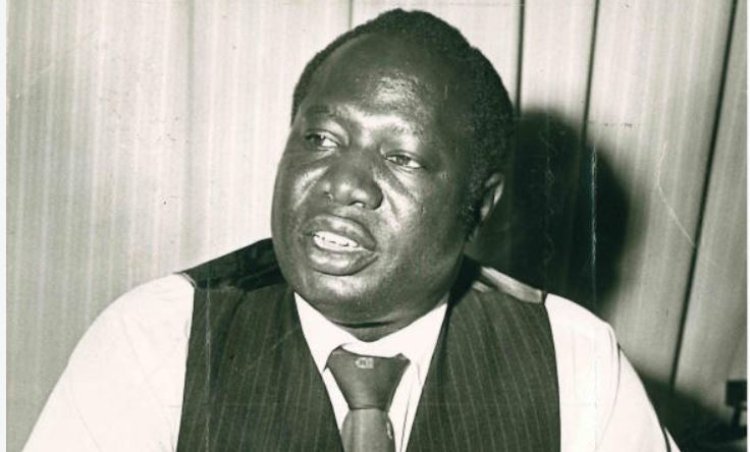Moi's Assistant Minister Who Brought Chips To Kenya
In the midst of the popular fast food dish, some careers have gone viral as a result of selling chips by the roadside.

A plate of chips always strikes the mind of Kenyans every single day. Today, almost anyone in the country can make the delicacy (also called French Fries) at home or sell it to their hungry fellows at varied prices.
In the midst of the popular fast food dish, some careers have gone viral as a result of selling chips by the roadside. Bevalyne Kwamboka is a good example of a national celebrity who makes a living selling chips while defying fashion critics who unwittingly turned her into an internet sensation in 2021.
Commercially, the delicacy is almost a staple food item across many fast food restaurants, both local and international (the companies set up here). Global fast-food chain Kentucky Fried Chicken (KFC) became the subject of a nationwide uproar earlier this year when it announced that it had not only run out of potatoes for its chips but it emerged that the restaurant was sourcing its potatoes from abroad.

Bevalyne Kwamboka making a plate of chips. /FACEBOOK
KFC was then forced to respond by announcing that it would source potatoes from farmers in the country. Alongside the National Potato Council, the restaurant identified the Markies variety of potatoes that Kenyan farmers can grow to supply it to meet its needs.
But little is known of a politician who served in the late Kenya's second president, Daniel Arap Moi's administration. Aggrey Otieno Ambala was a Kenyan businessman whose interests spread across various economic sectors including real estate and petroleum.
Ambala was a beneficiary of the Tom Mboya airlift who joined the famous Howard University in the United States (US) to study Economics. When he returned, he brought a revolutionary way which would change how Kenyans eat potatoes.
Before he introduced chips, Kenyans only boiled or roasted their potatoes. Ambala brought back with him a machine that could chop potatoes into the stripped shape of chips.
He opened a chips eatery near the Ambassadeur Bus stop in Nairobi Central Business District (CBD), however, his early days were tested by the scepticism of members of the public every time a new thing is being introduced to the market.
When they finally tasted his crispy pieces with salt and tomato or chilli sauce, everything changed for him and the whole country. Fish fillet, chicken and sausages with soda completed the menu.
Within a short time, the eatery was flooded with customers wanting to try Ambala's new creation, especially during the weekends. It also happened to occur that the Kenya Cinema was across the road, which made him extend opening hours to accommodate moviegoers.
Ambala sold the joint to new owners who renamed it ‘Munyiri’s Chips’ and moved to a nearby place, Tusker stage. He partnered with the late Njenga Karume and bought shares in Kenya Breweries Limited (KBL) as well as started a beer distribution company called Narashi Wholesalers; which is how the place got its Tusker name.
When the colonialists were selling their land in Karen on their way out of the country, Ambala bought several acres in the luxurious estate as well as shares in several blue-chip companies. He also ventured into the hardware and petroleum business in Kisumu and real estate around Nairobi, owning the petrol station near Afya Centre in Nairobi and the ‘Ka-Ambala’ petrol station in Kisumu.
He adopted the typical habit of Kenyans amassing enough business assets to bring them money and dove into politics. He was elected MP for Gem, Siaya County in 1979 after defeating Isaac Omolo Okero.
The late former President Moi appointed him assistant minister for culture. However, he lost his seat to Horace Owiti Ongili in the 1983 election, who was later killed in a bizarre incident that implicated Ambala.
Ongili was murdered on May 27, 1985, with reports disclosing that he was attacked by a gang with machetes, and batons. His body was dumped in a maize plantation and nothing was stolen from his home, fuelling rumours that he was a target of assassination.
Ambala became a major suspect in the murder after it was alleged that he had withdrawn huge amounts of money in the days leading up to Ongili’s death and had met with some persons of interest.
His personal life was marred by the abrupt end of his marriage to Beryl Odinga which ended in 1981 with him being accused of wife battery. The late Ongili was not only his best friend but also his best man during his wedding with Beryl, whose sister is former Prime Minister, Raila Odinga.

An old photo of Aggrey Otieno Ambala. /STANDARD DIGITAL
Ambala was arrested alongside six other suspects and charged with the murder. He collapsed and died of a heart attack in his cell at Kodiaga prison where he was awaiting his hearing.
It was then determined that that his murder charge was a miscarriage of justice with some alleging that he too was murdered to cover up the identity of the real mastermind.
The businessman cum politician reportedly left behind wealth currently worth billions, wealth which his family spent decades in protracted court battles. Children from his first marriage were pitted against those from his marriage to Beryl.






